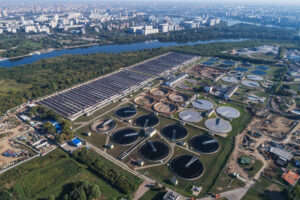Comprehensive Guide to Sewerage Water Management in MEP Construction

Effective sewerage water management is a crucial part of contemporary construction and infrastructure development. It guarantees the safe treatment and disposal of wastewater, which safeguards the public health and environment. In current engineering projects, the function of MEP construction and MEP services has significantly increased in creating and establishing effective sewerage systems.
Understanding MEP in Engineering
MEP engineering refers to Mechanical, Electrical, and Plumbing. It is a multidisciplinary design that incorporates necessary building services, such as water supply, drainage, HVAC systems, and fire protection. Out of these, plumbing and drainage are crucial for sewerage water management.
The mechanical, electrical & plumbing experts collaborate with each other to design effective sewerage systems that:
Avoid contamination of potable drinking water
Minimize waterborne diseases
Avoid non-compliance with environmental regulations
Importance of Sewerage Water Management
Sewerage water management does not simply mean disposing of wastewater. It entails:
Collection – Pulling wastewater from residential areas, industries, and business establishments.
Treatment – Stripping off dirt and harmful germs.
Disposal or Reuse – Confirming treated water can safely be let out into the environment or recycled for industrial and agricultural uses.
Appropriate sewerage management in MEP civil engineering works minimizes the chance of flooding, soil pollution, and foul smells in towns and industries.
Role of MEP Construction in Sewerage Management
MEP construction has a crucial role in installing sewerage systems. It encompasses:
Mechanical Installation : Sewage-carrying pipes, pumps, and valves.
Electrical Systems : Energy for operating pumps, monitoring systems, and sensors for wastewater inflow and treatment.
Plumbing Solutions : Effective pipe arrangements, drainage, and connections with municipal sewer pipes.
Coordinate these systems to ensure that sewerage systems run effectively even in complex buildings and cityscapes.
MEP Services in Sewerage Water Management
Up-to-date MEP services offer complete solutions for sewerage systems including:
Planning plumbing and drainage network layouts
Implementing sewage treatment plants (STPs)
Water level monitoring of wastewater using intelligent sensors
Upgrading and maintaining existing sewerage infrastructure
These services are especially important in MEP civil engineering constructions such as commercial buildings, hospitals, and residential townships where wastewater management needs to be accurate and sustainable.
MEP Civil Engineering Integration
Integrating MEP civil engineering practices ensures sewerage water management is uniformly incorporated into the overall building project. Civil engineers collaborate with MEP teams in order to:
Design underground sewer pipes
Guarantee structural stability for sewage storage tanks
Make the connection of buildings to municipal sewer lines
This integration guarantees durability, efficiency, and conformity with environmental regulations.
Conclusion
Sewerage water management is vital in contemporary construction, and the union of MEP in engineering makes it possible to manage wastewater safely and efficiently. Using strong MEP construction and expert MEP services, engineers can come up with systems that safeguard public health, conserve water, and ensure sustainable urban life.
For any project involving mechanical, electrical & plumbing, prioritizing sewerage water management is not just a regulatory requirement—it’s a responsibility towards the community and the environment.


